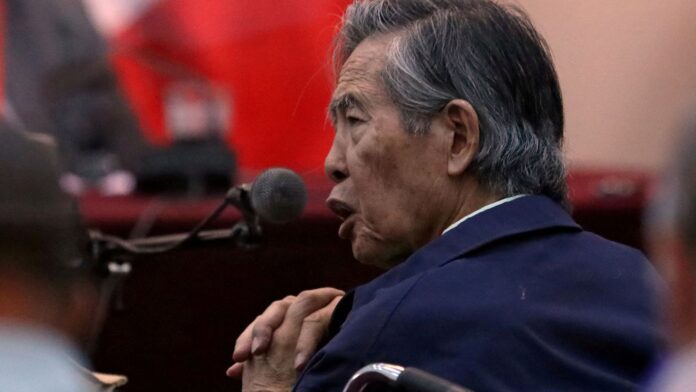The Inter-American Court of Human Rights (IACHR), on April 8, published a resolution, ordering the Peruvian State not to comply with the ruling issued by the country’s Constitutional Court to release former dictator Alberto Fujimori on medical grounds. The international court considered that the Constitutional Court’s decision failed to give adequate weight to the right to justice of Fujimori’s victims.
83-year-old Fujimori has been serving a 25-year prison sentence since 2009 for crimes against humanity and corruption committed during his regime (July 1990 – November 2000). He was found guilty as an indirect perpetrator of the Barrios Altos massacre, in 1991, and the La Cantuta massacre, in 1992, in which 24 people, including a child, were slaughtered by Peruvian security forces and right-wing extremist death squads as a part of his administration’s operations to eliminate left-wing insurgent groups.
Last month, on March 17, the Constitutional Court of Peru reinstated a controversial presidential pardon granted to Fujimori in December 2017. It was revoked in October 2018 by the first instance of the Supreme Court, after the victims’ families appealed it. The court concluded that it was contrary to international standards and that the medical records supporting Fujimori’s ill health had inconsistencies.
The IACHR said that “the State of Peru must refrain from implementing the sentence handed down by the Constitutional Court of Peru on March 17, 2022, which reinstates the effects of the pardon ‘for humanitarian reasons’ granted to Alberto Fujimori on December 24, 2017.”
The Inter-American Court stressed that Peru’s Constitutional Court issued the sentence without assessing the current health situation of the convicted person, as well as without taking into account its impact on the right of access to justice for victims and their families. “The highest Constitutional Court not only disregards what is indicated by this Inter-American Court, but also sends a message of total impunity in the face of the most serious violations of human rights and permissiveness to the rest of the justice operators in case of contempt of Court rulings and failure to comply with conventionality control,” condemned the international court.
The IACHR explained that the decision to overrule the Constitutional Court’s verdict was taken because it “did not comply with the conditions determined in the Resolution of supervision of compliance with judgments of May 30, 2018.”
In this regard, the IACHR requested the Peruvian government to “carry out specific supervision regarding the pardon granted to Alberto Fujimori, through the supervision of compliance with the obligation to investigate, prosecute and punish the serious human rights violations” in the Barrios Altos and La Cantuta cases,” and submit a report on the same latest by May 13.
On March 30, the IACHR ordered the Peruvian State to refrain from freeing Fujimori until it could review the matter and analyze the appeals presented by victims’ relatives. President Pedro Castillo’s government, at that time, said that it would abide by any decision of the IACHR.
Following the Constitutional Court’s decision to free Fujimori last month, thousands of Peruvians took to the streets demanding the revocation of the pardon, and calling on the government to ensure that the dictator remains behind bars for the full duration of his sentence.








